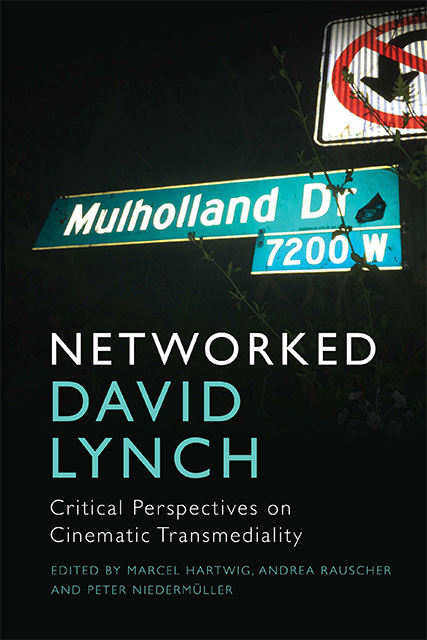Book contents
- Frontmatter
- Contents
- List of Figures
- Notes on Contributors
- Introduction: Entering Lynchtown
- Part I Approaching Intertexts
- Part II Twin Peaks as Transmedia Network
- Part III David Lynch's Transmedia Aesthetics
- Part IV Videographic Criticism of David Lynch’s Cinematic Work
- Conclusion: Leaving Lynchtown
- Index
Chapter 10 - Structures of Female Desire, Control and Withdrawal in Lynch's Cinematic Work
Published online by Cambridge University Press: 19 October 2023
- Frontmatter
- Contents
- List of Figures
- Notes on Contributors
- Introduction: Entering Lynchtown
- Part I Approaching Intertexts
- Part II Twin Peaks as Transmedia Network
- Part III David Lynch's Transmedia Aesthetics
- Part IV Videographic Criticism of David Lynch’s Cinematic Work
- Conclusion: Leaving Lynchtown
- Index
Summary
Female characters have a central role and function in Lynch's oeuvre. Their sexual desire often carries an entire plot. In contrast to this, male characters often appear to be incidental elements that women use to express their physicality. In many of Lynch's films, women express their longing physically. They exhibit homosexual desire (Mulholland Drive, Twin Peaks), fetishes (Blue Velvet) or seductive behaviour towards men to get something they want. Moreover, Lynch's female characters are often defined by alienation, splitting of the ego, psychosis, fear or dissociative traits (Blue Velvet, Mulholland Drive, Lost Highway). Yet Lynch's characterisation of women draws directly from the film noir trope of the femme fatale. The pairing of mental illness as a weakness and the strength of a classical femme fatale might seem conflicting at first. Mental issues or weakness might be rather associated with the character of the femme fragile. Lynch, however, turns this concept on its head: he associates his female characters with strength and weakness at the same time. The weakness often derives from mental problems and therefore almost substantiates the strength that comes with it because these women endure so much suffering. Nevertheless, this combination leads to very specific character developments and therefore very powerful cinematic moments on screen, which this chapter is dedicated to exploring.
By analysing sequences and stylistic devices in the films Blue Velvet, Lost Highway, Twin Peaks and Mulholland Drive, I discuss how Lynch, in combining strength and weakness as well as control and withdrawal as central features of his female characters, represents their desire and sexuality in his films. I show how these contrasts become essential to characterisation and plot development. Moreover, I discuss how female sexuality functions as a projection of the spectator's own desire, wishes and needs. Female desire in this context often symbolises failure of normative structures, such as the nuclear family, patriarchal structures like monogamous marriage or masculinity as supremacy in family and career, and other normative values and standards. Making use of gender theory and psychoanalytic approaches, this chapter argues that Lynch creates a universe in which well-known narrative structures fall apart and where the ideals of patriarchal society face constant re-evaluation.
- Type
- Chapter
- Information
- Networked David LynchCritical Perspectives on Cinematic Transmediality, pp. 172 - 188Publisher: Edinburgh University PressPrint publication year: 2023



